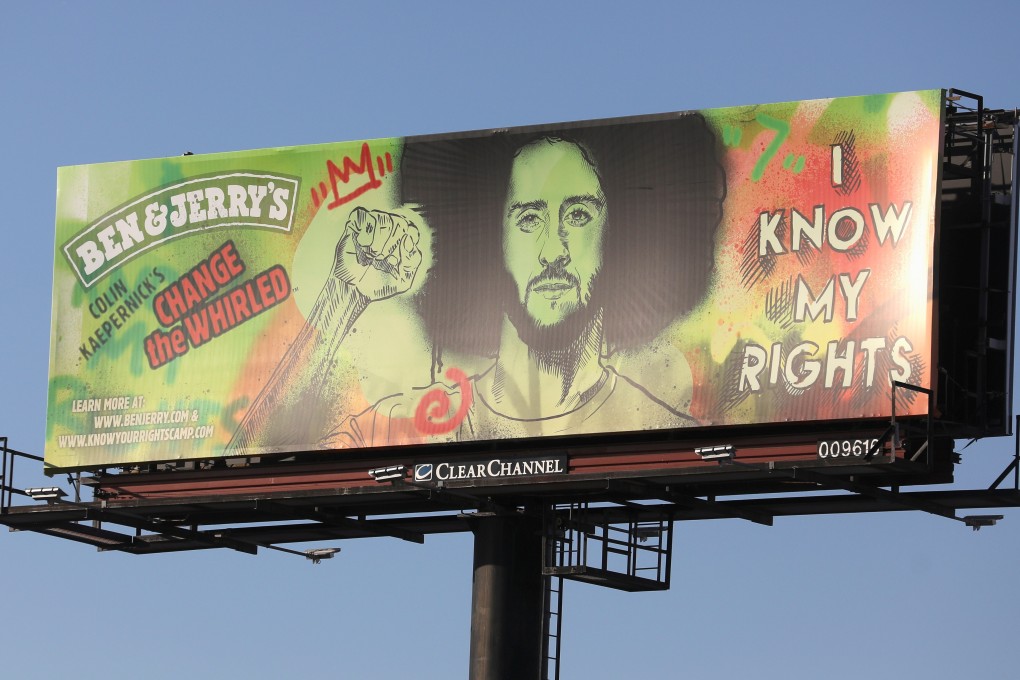Super Bowl LV: Colin Kaepernick back in America’s conscience as NFL hopes fade and social activism takes priority
- Sociologist Lucia Trimbur says the former 49ers quarterback will join the ranks of Ali, Carlos and Smith as anti-racism icons
- Former NFL star ‘on right side of history’, according to Ben & Jerry’s Chris Miller, as mural unveiled in West Tampa

A mural of Colin Kaepernick was unveiled in West Tampa on Thursday – part of a collaboration between the former San Francisco 49ers quarterback’s Know Your Rights Camp and Ben & Jerry’s ice cream.
Kaepernick’s social activism ended his career but his legacy is nevertheless fortified, said Lucia Trimbur, associate professor of sociology and American studies at the City University New York, specialising in African-American studies.
“I think he will join the folks from [the Tokyo Olympics in] 1968, Carlos and Smith, for being out in front of the movement and suffering for those political decisions he made,” said Trimbur, author of the book Come Out Swinging: The Changing World of Boxing in Gleason’s Gym about minority youth who take up boxing after leaving prison.